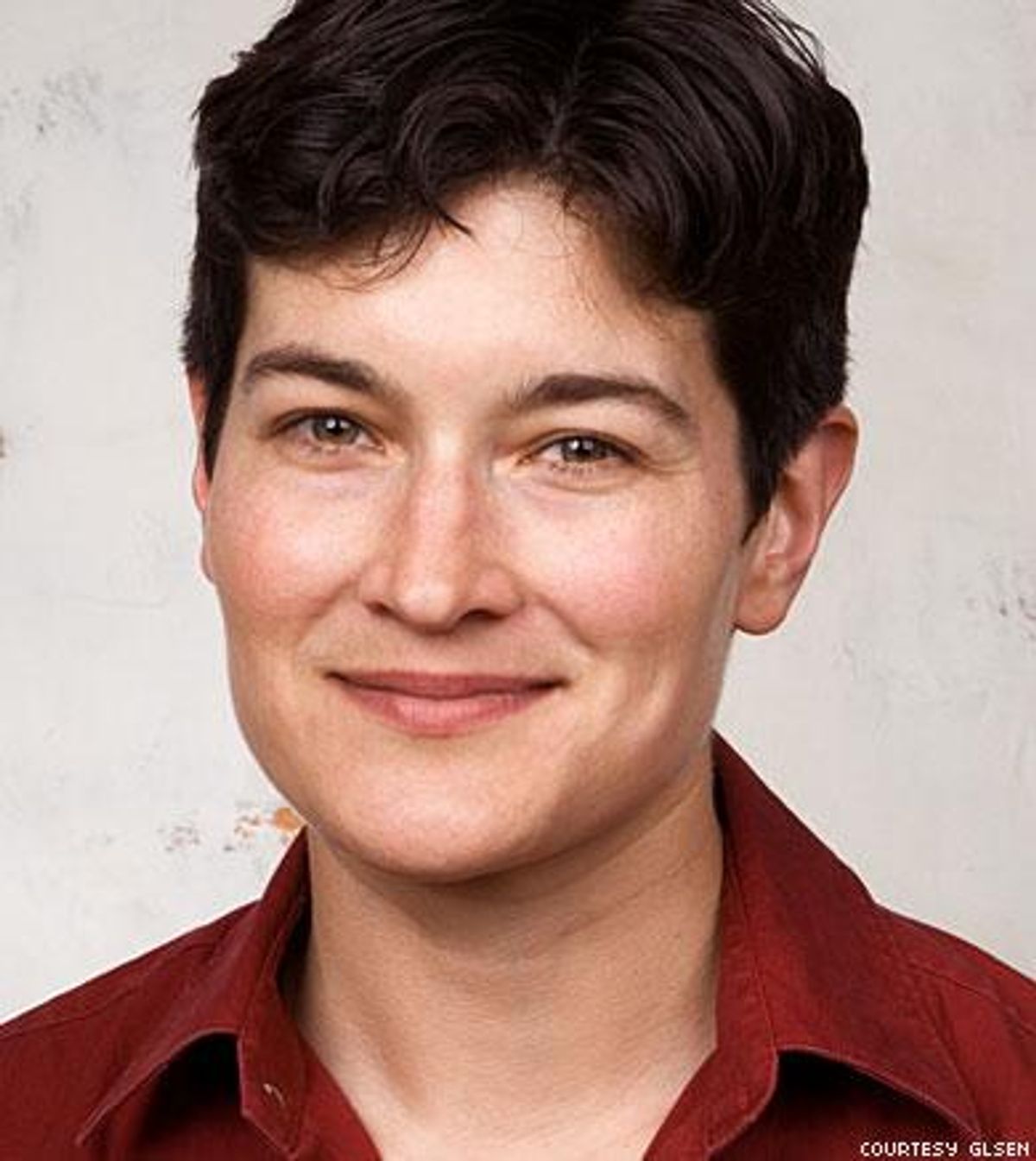You could say
GLSEN is getting a new principal.
On Wednesday the
Gay, Lesbian, and Straight Education Network announced
that Eliza Byard will become its new executive director,
replacing founder and longtime executive director
Kevin Jennings. Byard, who takes the reins on November
1, spoke to The Advocate about the task ahead
for LGBT students and all of us who want to see them
thrive.
Any discussion of
GLSEN has to begin with Jennings, whose face has been
synonymous with the organization he founded. Byard has been
Jennings's deputy since 2001, yet a GLSEN
without Jennings may take a bit of getting used to.
"GLSEN was
the brainchild of a very visionary, powerful
individual," Byard said. "Our history to
date has been very much intertwined with his, and I
think that makes sense. [Now] we're at a stage in the
organization's growth where it's ready to be
an institution that has many different faces.
That's been forced upon us by Kevin's decision
to leave, but it's also the next right step for
the institution as a whole."
Byard threw her
hat in the ring for the executive director job but
"insisted" on a national search, according to
a statement by Bob Chase, GLSEN national board chair.
Six months later, Byard got the job by unanimous vote.
"I was
pretty overwhelmed by the warmth and enthusiasm of the
response," she said. "It meant the world
to me."
While Jennings
came to GLSEN directly from the classroom, Byard got her
start as a producer working in film and TV.
"I was
working at channel 13 [the PBS flagship in New York] when I
was 13," Byard said, not kidding. She even
interned as a teen with journalist's journalist
Bill Moyers. "I always had the opportunity to
work on things that really matter to me. Mentors like
[Moyers] really gave me a sense of the larger purpose
of the work."
Byard and
Jennings first crossed paths in 1995, when both joined the
creative team for the 1996 documentary Out of the
Past, which interweaves the story of the struggle to
create a GSA in Salt Lake City with pivotal chapters
of LGBT history. Byard cowrote, coproduced, and
coedited the film; it won the audience award at Sundance
and later aired on PBS.
Education
fascinated her, for a couple of reasons.
"One, I
was studying U.S. history," she said. (She would go
on to earn a Ph.D.) "Two, I did a project for
Frontline [in 1994] called School Colors
that was about multiculturalism in public education 40
years after Brown v. Board of Education. From my own
experience and from the people I was around making
that film, I've always had a clear sense that
education and school experience is crucial as one of the
few shared experiences that Americans have."
As Byard points
out, GLSEN has many faces. The organization Jennings
founded 18 years ago with some 70 fellow teachers is now a
national player, with offices in New York and
Washington, D.C.; 40 staffers; and some 4,000
registered gay-straight alliances in schools across the
country.
One of the
organization's original concepts, GSAs have proved
remarkably effective in fostering understanding and
friendship gay and straight students -- so much so
that rather than sanction GSAs, administrators bent on
discouraging gay visibility have sometimes banned all
student clubs.
Newer GLSEN
school awareness programs include No Name-Calling Week,
inspired by James Howe's young adult novel The
Misfits; and the annual Day of Silence, which was
dedicated in 2008 to slain gay California
eighth-grader Lawrence King. Then there's the
brand-new "ThinkB4YouSpeak" campaign
created by the Ad Council -- GLSEN's biggest
effort ever, with a $2 million budget, celebrity
participation, and media outreach to some 33,000
stations.
The need
continues. According to GLSEN's just-released 2007
National School Climate Survey, including more than
6,000 respondents, nine out of 10 LGBT students
experienced harassment at school in the past year, three
fifths felt unsafe at school because of their sexual
orientation, and about a third skipped a day of school
in the past month because they felt unsafe.
Byard, whose
3-year-old daughter just started kindergarten, said she
means to improve school safety on her watch -- and more.
"We have had a very important and very narrow
strategic focus on safety, which is a crucial piece of
this puzzle and a very important front for a lot of
continued focus. But one of the things that always appealed
to me about GLSEN is that, right at its founding, it
made a central commitment to this idea of learning
communities that are diverse, that are shared, that
are for everyone."
That sharing is
the long-term goal, as Byard sees it -- not just a safe
school culture but one that really prizes different kinds of
students, including those who are LGBT. When every
student is comfortable enough to learn, every other
student benefits. It's that simple.
"Viscerally, to any parent, when they really think
about it, they'd get it," Byard said.
"Any educator, when they really think about it,
they'd get it. It's about a shared hope
for all our kids, a shared hope for everybody who
works in a school and cares about young people and cares
about the future. Come on, you don't go to work in a
school unless you care about the future."



















































































